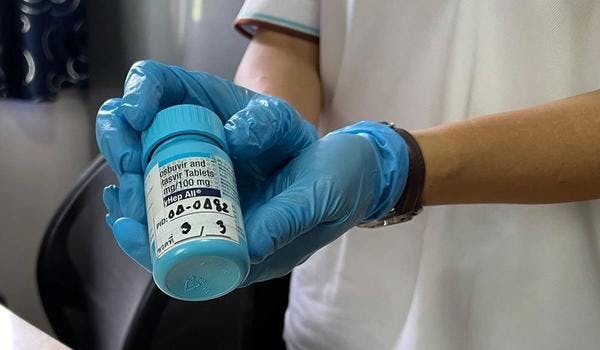UN News/Daniel Dickinson
Thaïlande : Passer de la punition au traitement des personnes usagères des drogues
Les changements politiques qui élargissent l'éventail des réponses de l'État aux personnes usagères des drogues ont facilité le travail des organisations dirigées par des pairs qui fournissent des services de santé et de réduction des risques. Pour en savoir plus, en anglais, veuillez lire les informations ci-dessous.
“I first started taking drugs when I was 15,” says 49-year-old Prapat Sukkeaw. “I smoked marijuana, but it was laced with heroin. I felt like I was floating, and it meant that I could forget about all the problems that I faced as a teenager. It was a beautiful feeling.”
Prapat Sukkeaw is one of an estimated 57,000 people who currently injects drugs in Thailand. His drugs of choice, marijuana and heroin, reflect a period in Thailand’s recent history when both illegal narcotics were the main stimulants being trafficked out of the storied Golden Triangle, a remote and somewhat inaccessible region which includes northern Thailand as well as Myanmar and Laos.
Employed by a non-governmental organization (NGO), he has on occasion wanted to give up heroin due to pressure from family and friends. Now, he has recognized that, even if he admits to being addicted, taking drugs “is my preference and my right”. He has now started taking the synthetic drug methamphetamine, as heroin has become progressively more expensive.
His focus has moved from abstaining from drugs to living with the side effects and managing the potential harm of their prolonged use, for example by not sharing needles.
Like all Thai citizens, Mr. Sukkeaw has access to universal health care, but he found that as a person who uses drugs, he was stigmatized and discriminated against by health care workers. He was referred to Ozone, an NGO based in a suburb of the Thai capital, Bangkok.
Ozone’s goal is to reduce the health and social impacts of drug addiction, promoting abstinence, but also supporting clients who want to carry on using and ensuring that they have access to the health services they require.
Régions
Profils associés
- Ozone Foundation
